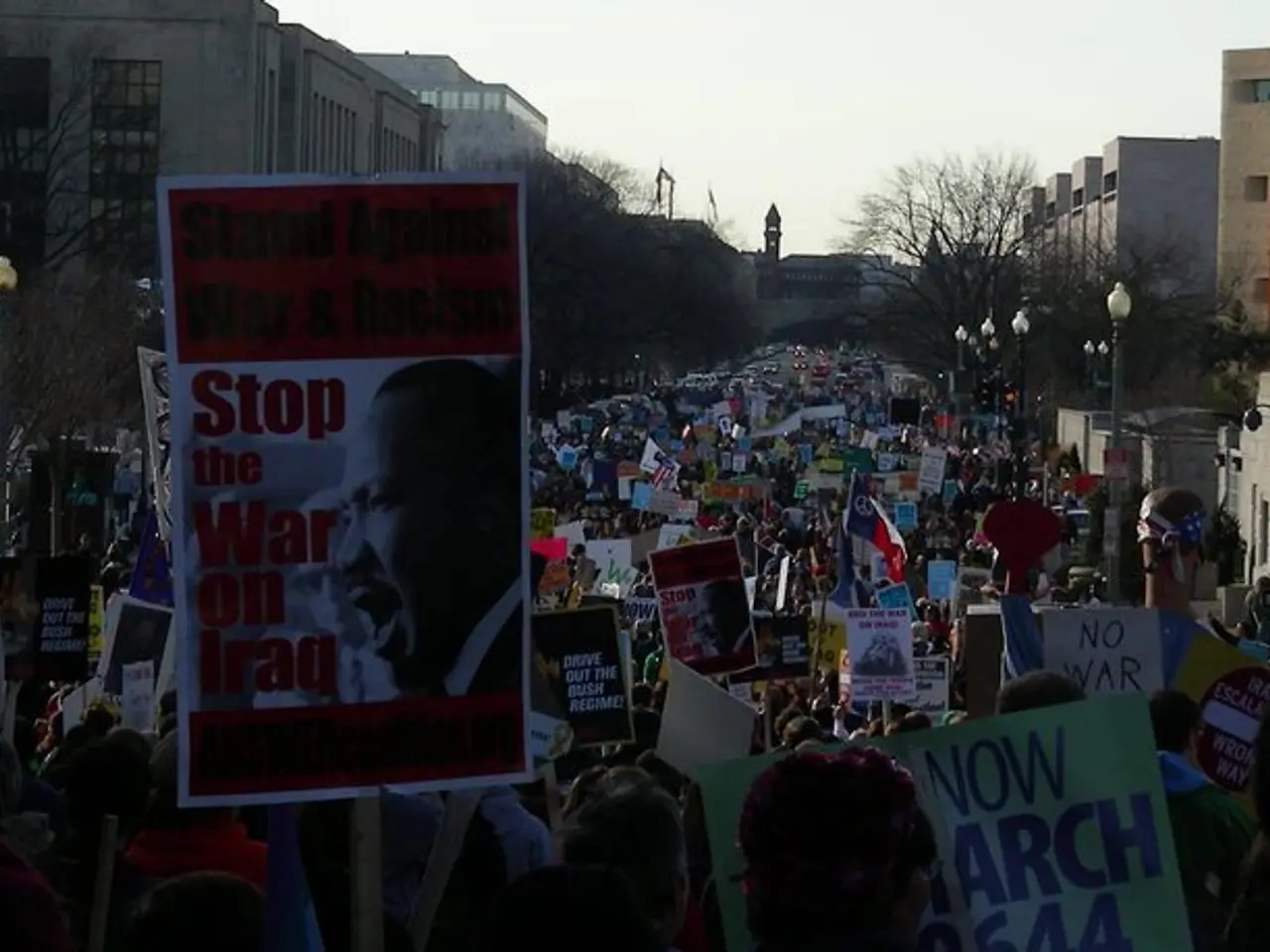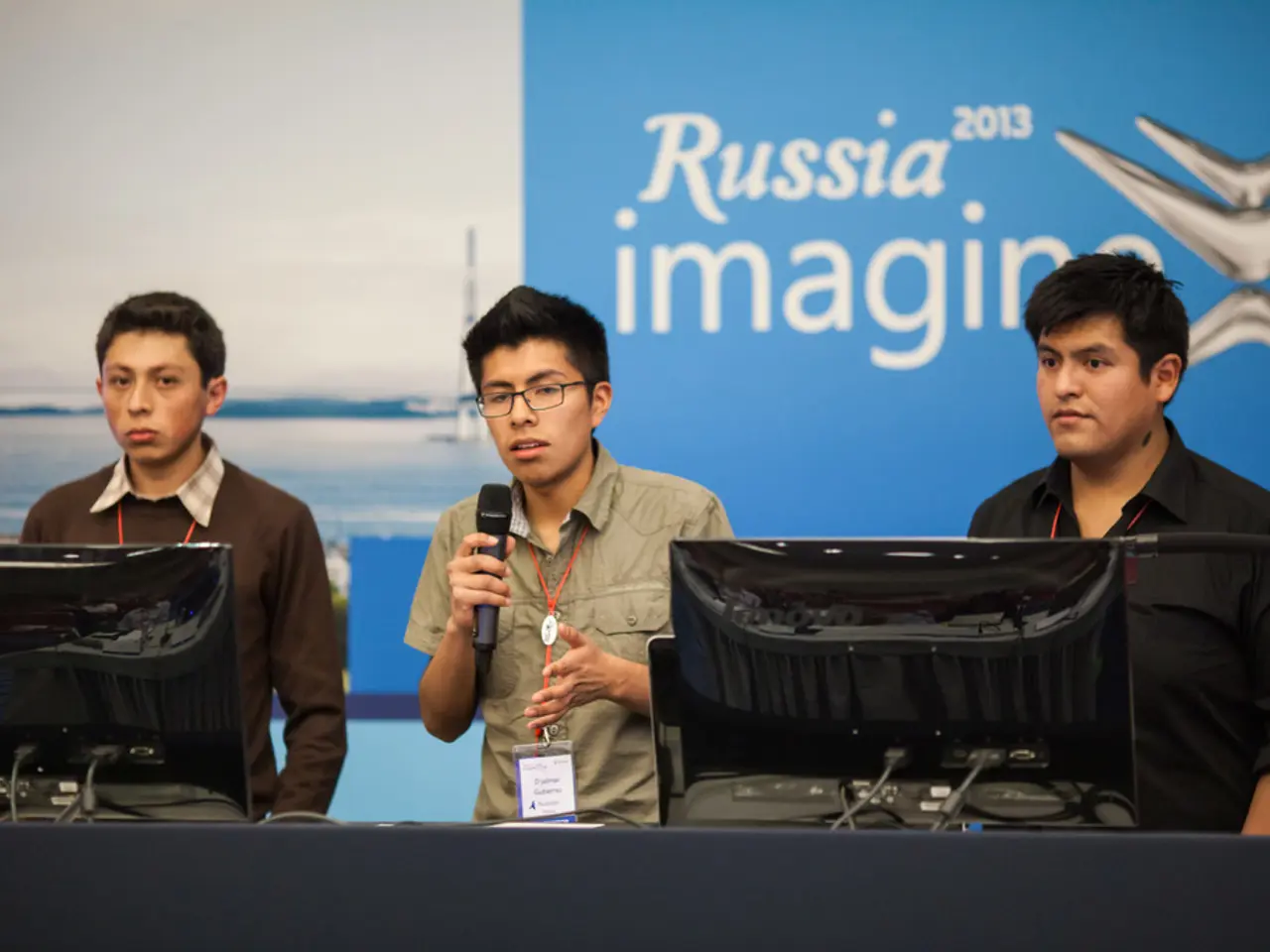Trump's administration requests the Supreme Court to permit contentious ICE operations within California
U.S. Supreme Court to Review Emergency Petition on ICE Patrols in Southern California
The U.S. Supreme Court is currently reviewing an emergency petition from the Trump administration, aiming to lift a temporary ban on "roving patrols" by immigration enforcement officials in Southern California. This ban was ordered by U.S. District Judge Maame Ewusi-Mensah Frimpong and upheld by the 9th Circuit Court of Appeals, which froze ICE patrols that perform stops without establishing reasonable suspicion.
The legal dispute revolves around the Fourth Amendment, which protects against unreasonable searches and seizures. Judge Frimpong’s ruling prohibits immigration agents from conducting stops based solely on factors such as race, ethnicity, language spoken, location, or employment—either alone or combined—to establish reasonable suspicion. The court found these enforcement tactics likely violate constitutional rights because they effectively allow agents to stop people just for existing in certain areas, disproportionately impacting Latino communities.
In its appeal, the Trump administration argues that lower courts weighing the case had flouted the Supreme Court's decision in late June, which limited the ability of lower courts to issue sweeping orders blocking a president's agenda. The administration contends that while speaking Spanish or working in certain jobs alone does not create reasonable suspicion, these factors can legitimately contribute to it when combined with others. They argue that the restrictions hamper immigration enforcement and challenge their capacity to conduct lawful investigations.
Opponents, including immigrant rights groups and some local governments, argue that ICE and Border Patrol use racial and ethnic profiling disguised as reasonable suspicion, leading to unconstitutional seizures and harm to citizens and immigrants alike. The plaintiffs emphasize the federal government is being asked to "follow the Constitution," not be given an open license to conduct stops targeting Latino individuals indiscriminately.
The case remains in an emergency status before the Supreme Court as of early August 2025, with oral arguments not expected imminently due to the nature of the emergency stay request. The administration's appeal states that Frimpong's order, which was intended to limit geographically, affects all detentive stops among the 20 million inhabitants of the Central District of California, whether those stops affect respondents or not. Lower courts found that the agency likely had not established the "reasonable suspicion" required to justify these stops, with the 9th Circuit reasoning that any other outcome would be unworkable, as a federal agent wouldn't be able to discern in advance whether a person to be detained is on the list of individuals who sued.
The incidents in question involved masked and heavily armed Immigration and Customs Enforcement agents stopping people who identify as Latino, including U.S. citizens, to interrogate them about their immigration status. A U.S. District Court ordered the Department of Homeland Security to discontinue the practice if the stops were based largely on a person’s apparent ethnicity, language, or their presence at a particular location. Judge Frimpong, appointed by President Joe Biden, ruled that the court needs to decide whether the Trump administration is conducting "roving patrols without reasonable suspicion" and denying access to lawyers. The 9th Circuit concluded that Frimpong’s decision was in bounds, as the geographic impact of the order was limited and it only incidentally affected non-named parties.
This case is one of nearly two dozen emergency appeals the administration has filed at the Supreme Court since Trump began his second term in January, many of which have dealt with Trump's immigration policies. The administration is trying to block this decision as they continue to aggressively crack down on illegal immigration.
References: 1. NPR 2. Los Angeles Times 3. Washington Post 4. CNN 5. The Hill
- The emergency petition before the U.S. Supreme Court concerns policy-and-legislation related to politics, specifically the administration's immigration enforcement policies and their impact on the constitutional rights of individuals.
- The legal dispute over ICE patrols in Southern California is a significant point of general news, with implications for politics and policy-and-legislation, as it raises questions about reasonable suspicion, racial profiling, and the balance between national security and civil liberties.








